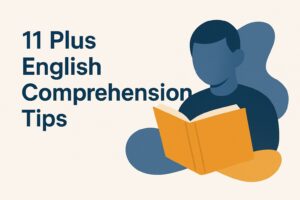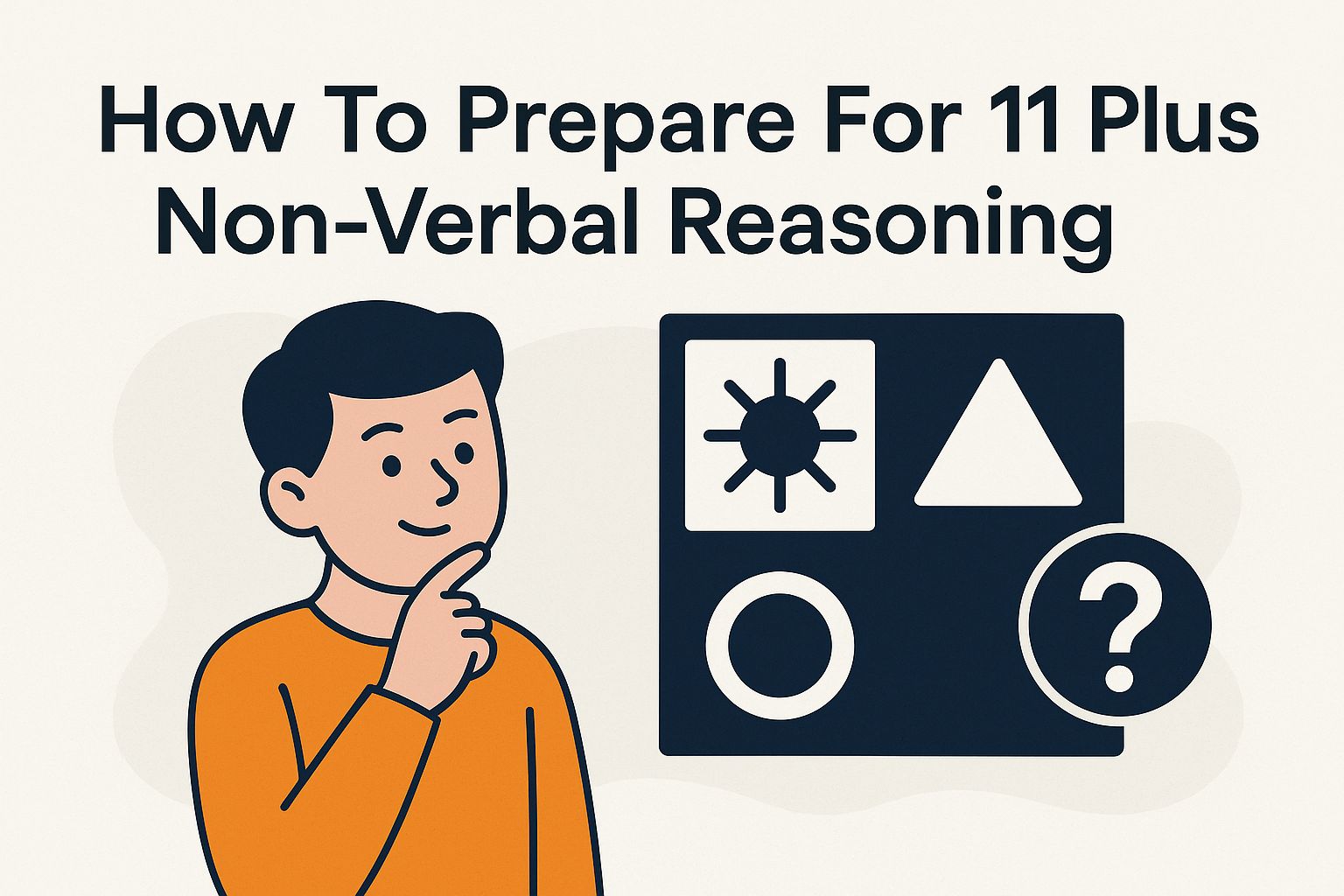
How To Prepare For 11 Plus Non-Verbal Reasoning
Ready to tackle the 11 Plus non-verbal reasoning test? It’s not just about solving puzzles; it’s a vital skill that can shape your child’s academic future. Understanding what non-verbal reasoning entails and how it fits into the exam is crucial for success.
We’ll dive into the exam format, essential skills to master, study resources, and effective techniques that can make all the difference. Let’s unlock the secrets to confident preparation together!
What is Non-Verbal Reasoning?
Non-Verbal Reasoning tests evaluate a child’s ability to interpret and manipulate visual information, concentrating on skills like pattern recognition and spatial reasoning. These assessments typically examine a range of abilities, including visual-spatial awareness, which involves understanding how objects relate to one another in space.
Children’s logical reasoning is also assessed, requiring them to deduce relationships from visual patterns. Common question formats include:
- Symmetry challenges, where they identify the missing half of a shape.
- Sequence puzzles that involve arranging shapes according to a specific rule.
Fostering these skills can significantly enhance problem-solving abilities. Therefore, utilising practice resources such as online exercises or workbooks can be quite beneficial in preparation.
Importance of Non-Verbal Reasoning in 11 Plus Exams
Mastering Non-Verbal Reasoning significantly enhances a student’s likelihood of success in the 11 Plus exams, as many schools place considerable emphasis on these scores. Research shows that schools that prioritise non-verbal reasoning often see a 15% increase in overall exam performance.
Prestigious institutions like the Grammar School of Quality have adopted assessments that heavily focus on this area, recognising its strong connection to problem-solving and critical thinking skills. However, success is rarely based on one subject alone — strong performance in English, alongside non-verbal reasoning, often provides the balanced skill set schools are looking for.
Tools such as GL Assessment’s non-verbal reasoning practice tests offer students a structured way to prepare. Regularly practising with these resources not only deepens their understanding but also builds the confidence essential for success in their exams.
Understanding the Exam Format
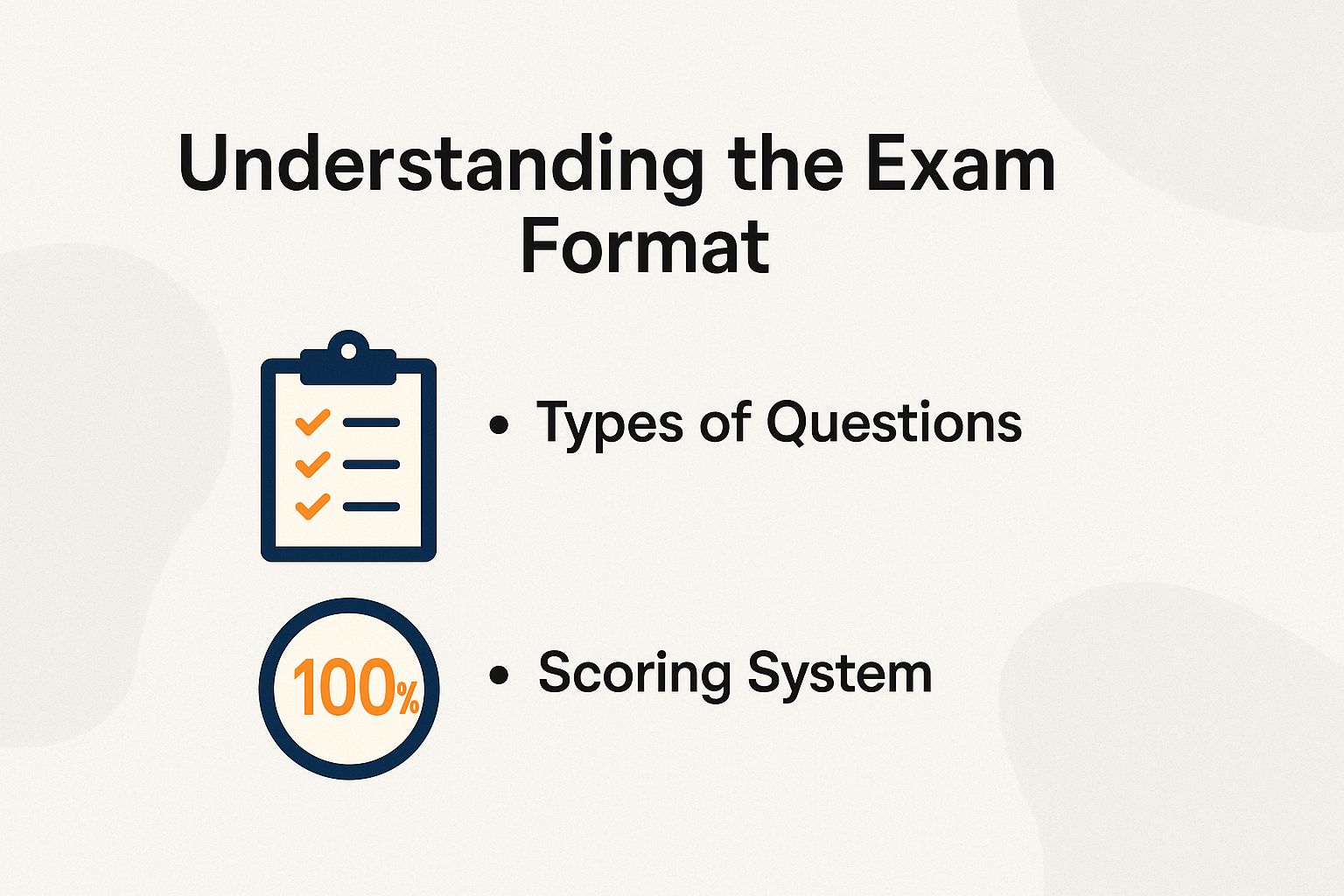
Understanding the structure of the 11 Plus Non-Verbal Reasoning examination is crucial for effective preparation and strategy development. For those looking to delve deeper into the specifics, our comprehensive guide on the format of the 11 Plus Exam offers detailed insights into the GL, CEM, and ISEB formats.
Types of Questions
The 11 Plus Non-Verbal Reasoning exam usually encompasses various question types, including shape sequences, analogy questions, and matrix completion. It is important to familiarise oneself with key question types in order to prepare effectively.
- Shape Sequences: Candidates are tasked with identifying the next shape in a series. For example, if the series alternates between circles, triangles, and squares, the next shape would be a circle.
- Analogy Questions: These questions require students to establish a relationship between two shapes and apply that relationship to another pair. For instance, if a square relates to a cube, then a circle relates to a __________ (the answer being sphere).
- Matrix Completion: This question format presents a grid where participants must identify the missing shape that completes the pattern. Understanding these question types is essential for thorough preparation.
Scoring System
The scoring system for Non-Verbal Reasoning in the 11 Plus exams can differ, but it generally ranges from 0 to 100, with higher scores reflecting better performance.
Schools often employ various methods for scoring. For example, some may use a percentile rank, where a score of 75 could indicate that a student is in the top 25% of all candidates. Others might prefer a raw score system, grading students based on the number of correct answers they provide.
Additionally, certain schools may assign extra weight to specific sections, which can influence overall results. Understanding these nuances is important for parents as they navigate preparation strategies, as it may be beneficial to concentrate on particular practice areas that align with the format of their chosen school.
Essential Skills for Non-Verbal Reasoning
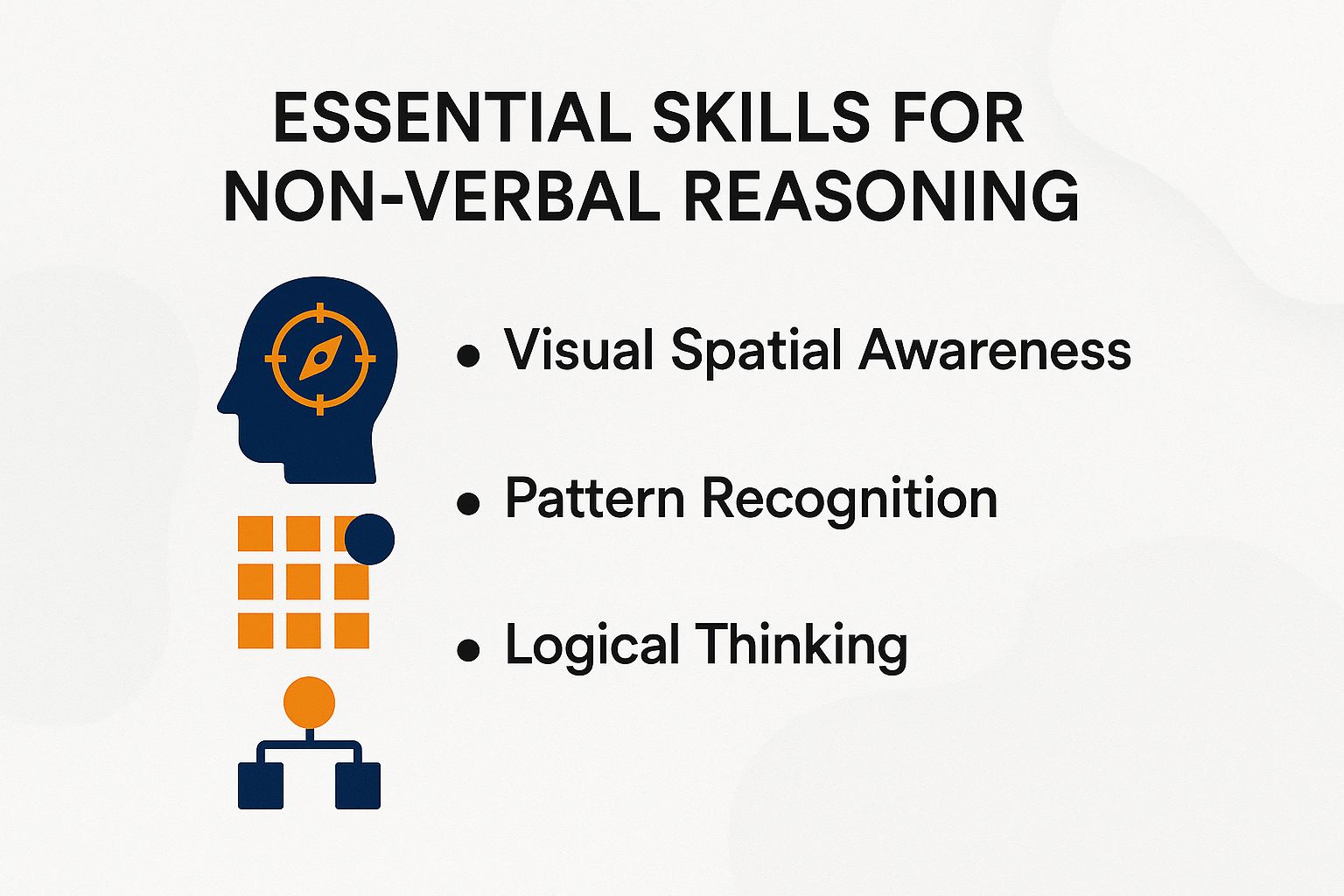
To excel in Non-Verbal Reasoning, students need to cultivate a variety of essential cognitive skills that will enhance their problem-solving capabilities. These skills are crucial for effectively navigating the challenges presented in this area of study.
Related insight: 11 Plus Exam Preparation: A Parent’s 2025 Guide offers strategies that can further support skill development in young learners.
Visual Spatial Awareness
Visual Spatial Awareness refers to the ability to visualise and manipulate objects within a three-dimensional space, a skill that is often assessed in Non-Verbal Reasoning tests.
Enhancing your visual spatial awareness can be an enjoyable and effective endeavour. One way to begin is by engaging with visual puzzles, such as jigsaw puzzles or 3D mazes, which challenge your ability to envision the final outcome.
Another effective approach is to utilise 3D modelling software like SketchUp, which enables you to design and visualise spaces in real-time.
Additionally, consider playing games such as Tetris or exploring apps specifically focused on improving spatial reasoning.
By dedicating just 15 to 30 minutes a few times a week to these activities, you can significantly enhance your spatial skills.
Pattern Recognition
Pattern recognition involves identifying trends and regularities in visual information, which is essential for solving non-verbal reasoning problems.
To enhance your pattern recognition skills, consistent practice is crucial. Engaging in daily exercises, such as Sudoku, can help you identify numerical patterns. Additionally, utilising logic puzzle applications like Brain Age or Logic Puzzles can be very beneficial.
Aim to dedicate at least 15 minutes each day to puzzle-solving. It is also helpful to observe patterns in everyday life, such as the flow of traffic or design elements in architecture. This real-world application not only reinforces your skills but also keeps your mind sharp.
By regularly challenging yourself with these methods, you can cultivate a more analytical mindset, which ultimately paves the way for improved problem-solving abilities.
Logical Thinking
Logical thinking refers to the ability to reason systematically, which is essential for making deductions in Non-Verbal Reasoning questions.
To enhance your logical thinking skills, it is beneficial to engage with puzzles and games that challenge your reasoning abilities. For instance, playing chess can effectively sharpen your strategic thinking and foresight.
There are also platforms like Brilliant.org that provide interactive courses focused on critical thinking and logic games. By dedicating just 30 minutes a day to these activities, you can cultivate a more structured mindset.
Additionally, consider joining local clubs or online forums where you can practice with others. This allows for the exchange of strategies and insights, further facilitating your improvement in logical thinking.
Preparing a Study Plan
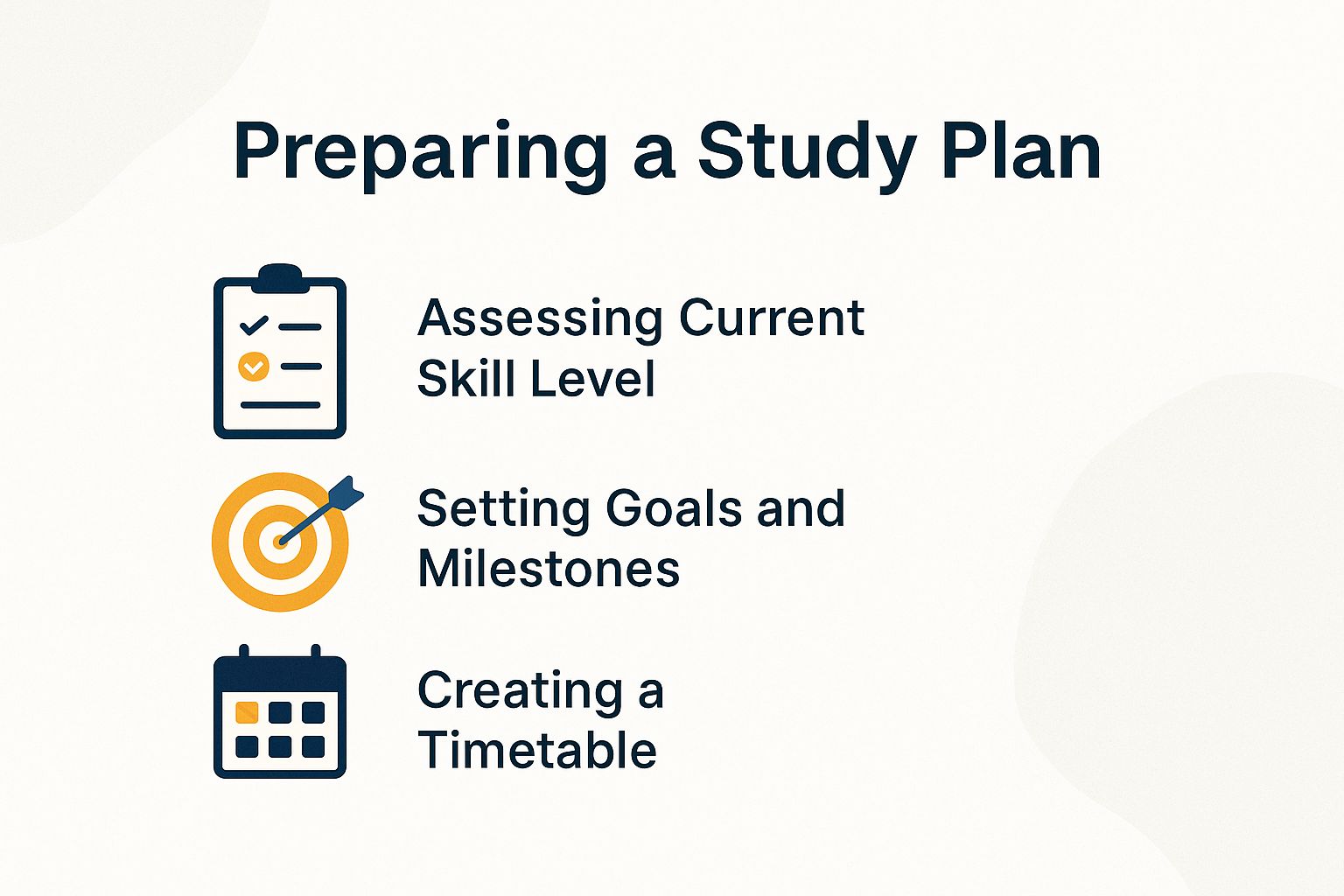
A well-organised study plan is crucial for mastering Non-Verbal Reasoning and attaining success in the 11 Plus exams.
By having a structured approach, students can systematically cover the necessary material and improve their understanding, ultimately enhancing their performance in the exam. Those curious about how to create an effective plan might appreciate our insights on what should be in an 11 Plus study plan.
Assessing Current Skill Level
Begin your preparation by assessing your child’s current skill level using diagnostic tests or sample papers to identify both strengths and weaknesses. One effective approach is to utilise the Bond 11 Plus Practice Papers, which are specifically designed to resemble the types of questions encountered in the actual exams.
Once your child has completed several papers, it is important to analyse their performance to identify areas that may require improvement, such as verbal reasoning or mathematics. You might also consider using online platforms like IXL or Khan Academy, which provide tailored practice and instant feedback.
These resources not only support skill enhancement but also offer a clear roadmap for your child’s study plan, ensuring that they are optimally prepared for their upcoming tests.
Setting Goals and Milestones
Establishing clear goals and milestones is essential for maintaining motivation and tracking progress during Non-Verbal Reasoning preparation. To effectively structure your preparation, it is advisable to set specific, measurable goals.
For example, you might aim to complete 20 practice questions each week, adjusting this number based on your performance assessments.
To enhance your preparation, consider utilising tools like online question banks or applications such as ‘Reasoning Test Pro’ to simulate real exam conditions. After two weeks, take the time to review your accuracy and timing in order to identify areas that require improvement, such as visual patterns or sequence reasoning.
This reflective approach enables you to modify your goals in a manner that keeps you suitably challenged without feeling overwhelmed.
Creating a Timetable
A well-structured timetable is essential for students to allocate adequate time to each topic in Non-Verbal Reasoning, thereby enhancing their learning retention.
To create an effective timetable, it is advisable to first identify your peak focus hours—these are often early in the morning or late in the afternoon for many individuals. Utilising tools such as Google Calendar can be beneficial for blocking these optimal times for study sessions dedicated to Non-Verbal Reasoning. It is recommended to aim for 25-minute focus bursts followed by 5-minute breaks, a method known as the Pomodoro Technique.
Next, consider designating specific days for different topics; for instance, you might focus on spatial reasoning on Mondays and tackle logic puzzles on Wednesdays. Additionally, keeping track of your progress by checking off completed topics can significantly boost both motivation and accountability.
Resources for Preparation
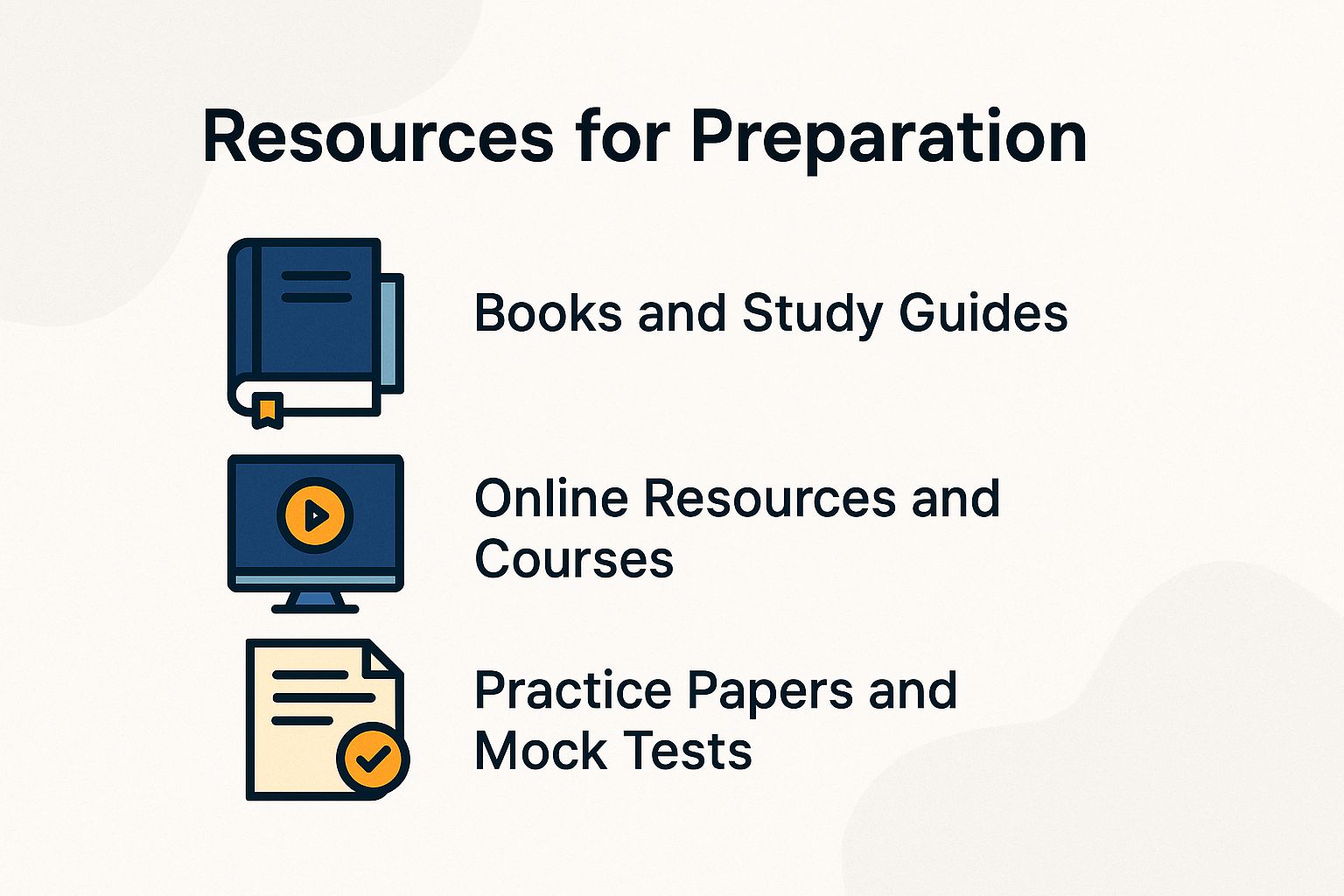
Utilising a range of resources significantly enhances preparation for Non-Verbal Reasoning. It provides students with various avenues for practice and learning, assisting them in engaging with the material in a more effective manner. For instance, understanding the specific format of the 11 Plus exam can help tailor their practice techniques to meet exam expectations more accurately.
Books and Study Guides
Books and study guides play a crucial role in facilitating structured learning in Non-Verbal Reasoning, providing both theoretical insights and practice questions. Here are some essential resources to consider:
- The “Bond 11 Plus Non-Verbal Reasoning” series offers targeted practice with over 40 different question types, making it a preferred choice among tutors.
- The “11+ Non-Verbal Reasoning Guide” by CGP presents clear explanations and step-by-step strategies, accompanied by practice papers for effective learning.
- “Non-Verbal Reasoning for 11+” by Susan Daughtrey includes 10 full-length tests, making it ideal for thorough exam preparation.
- Finally, “Practice Tests for 11+” by IPS is specifically designed to simulate actual exam conditions, which helps students build their confidence.
Together, these resources provide learners with a comprehensive and diverse set of preparation tools to excel in Non-Verbal Reasoning.
Online Resources and Courses
Online resources and courses offer flexible and interactive opportunities for students to enhance their Non-Verbal Reasoning skills. Various platforms provide tailored courses to accommodate different learning styles and budgets.
For example, Tutors.com offers one-to-one sessions priced at £40 each, which allow for personalised feedback tailored to individual needs. The Tutor House conducts small group classes at £25 per session, promoting valuable peer interaction. In addition, MyTutor provides bespoke sessions starting at £30, with tutors who prepare custom materials specifically for their students.
Another noteworthy option is StudyMind, which offers comprehensive online courses at £50, covering a range of reasoning techniques along with extensive practice exercises. Each of these options emphasises live interaction, ensuring that students remain engaged throughout their learning experience.
Practice Papers and Mock Tests
Regular practice with mock tests and papers is crucial for helping students become familiar with the exam format and enhancing their time management skills. To effectively incorporate mock tests into their study plans, students should start by sourcing materials from reputable platforms like 11PlusMockTests.com, which offers a diverse range of tests tailored to different subjects.
It is advisable to schedule these mock tests once a week under timed conditions to closely replicate the actual exam environment. After each test, students should set aside time to review their answers, allowing them to identify areas that need improvement. This practice not only boosts their confidence but also sharpens their analytical skills, as they learn to manage their time efficiently and gain a better understanding of the question formats they will encounter in the exam.
Effective Study Techniques
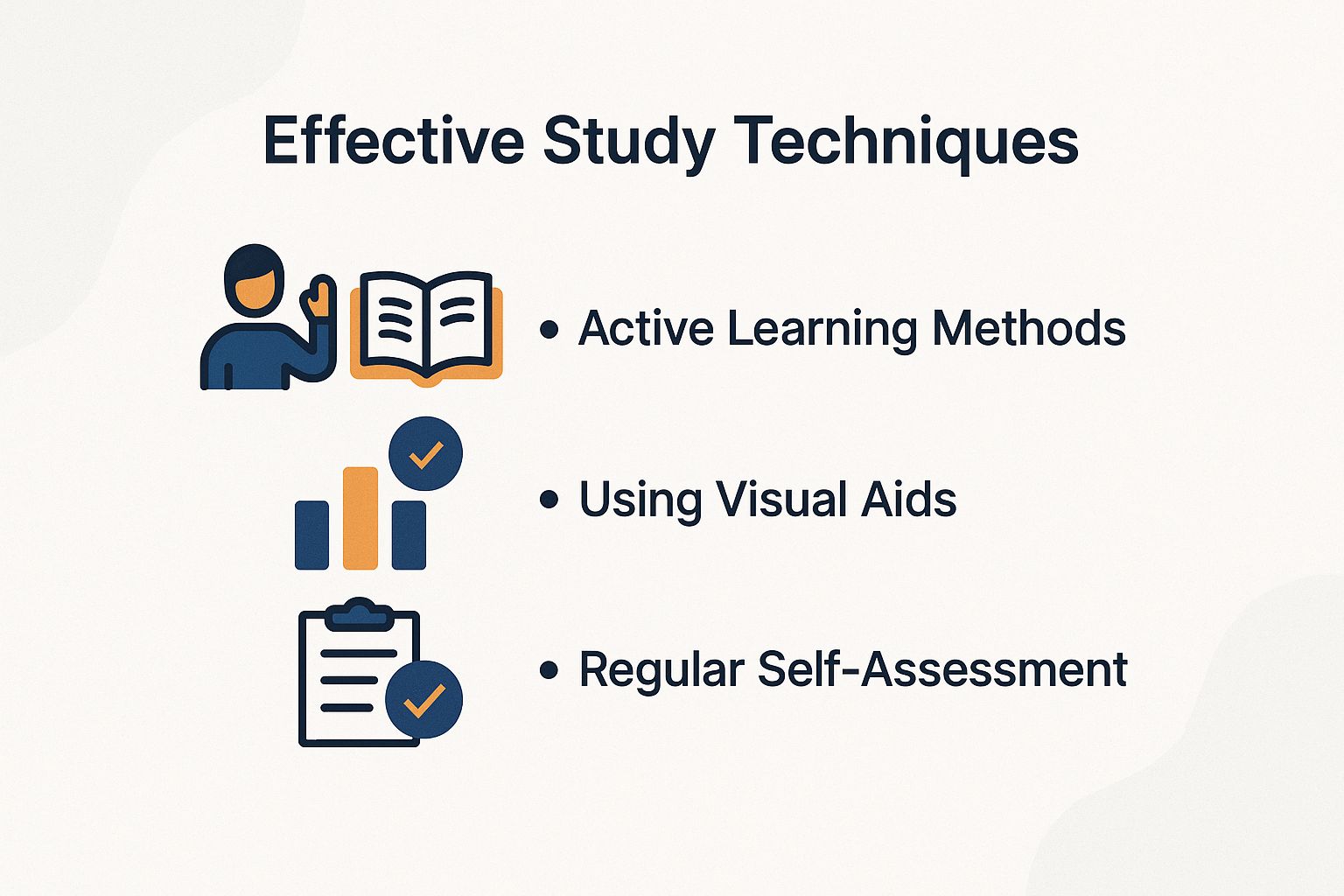
Utilising effective study techniques can greatly improve learning retention and performance in Non-Verbal Reasoning.
Adopting the right strategies not only helps in understanding the material better but also ensures that the information is retained for future use (our expert opinion on building resilience for exams can provide further insights).
Active Learning Methods
Active learning methods, such as group discussions and teaching back, have been demonstrated to enhance understanding and retention in Non-Verbal Reasoning.
One particularly effective technique is the Feynman Technique, which encourages students to explain concepts in simple terms. This approach reinforces their understanding significantly.
For example, when studying patterns, a student might explain how to identify shapes and sequences to a peer, ensuring that both individuals grasp the material on a deeper level.
Another valuable method is collaborative problem-solving, where groups work together to tackle complex reasoning questions. By pooling their insights and perspectives, students can enhance their learning experience.
Additionally, tools like Google Docs can facilitate real-time collaboration, enabling students to share their thoughts and solutions instantly. This creates a more interactive and engaging study environment, fostering deeper connections with the material.
Using Visual Aids
Incorporating visual aids such as diagrams and charts can significantly enhance comprehension in Non-Verbal Reasoning. To make the most of your study sessions, consider utilising specific tools like Canva, which allows you to create clear and visually appealing charts that summarise complex ideas effectively.
MindMeister is another excellent option for developing mind maps that visually connect concepts, thus aiding in retention. Additionally, using flashcards created with tools like Quizlet can help reinforce key ideas and practise your skills.
Each of these methods not only makes information more accessible but also caters to various learning styles, ultimately helping you grasp Non-Verbal Reasoning more effectively.
Regular Self-Assessment
Regular self-assessment plays a crucial role in helping students identify areas for improvement and track their progress in Non-Verbal Reasoning preparation.
To engage in effective self-assessment, students may utilise tools such as Exam Ninja, which provides practice quizzes specifically designed for Non-Verbal Reasoning.
Establishing a study schedule that incorporates weekly assessments can illuminate both strengths and weaknesses. It is advisable to dedicate time each Saturday to take a practice test, followed by a thorough review of any incorrect answers to gain insights into mistakes made.
Additionally, participating in online forums where peers discuss various problems fosters a sense of collaborative learning. By integrating these strategies, students can develop a dynamic approach to self-assessment that ultimately leads to enhanced performance.
Exam Day Preparation
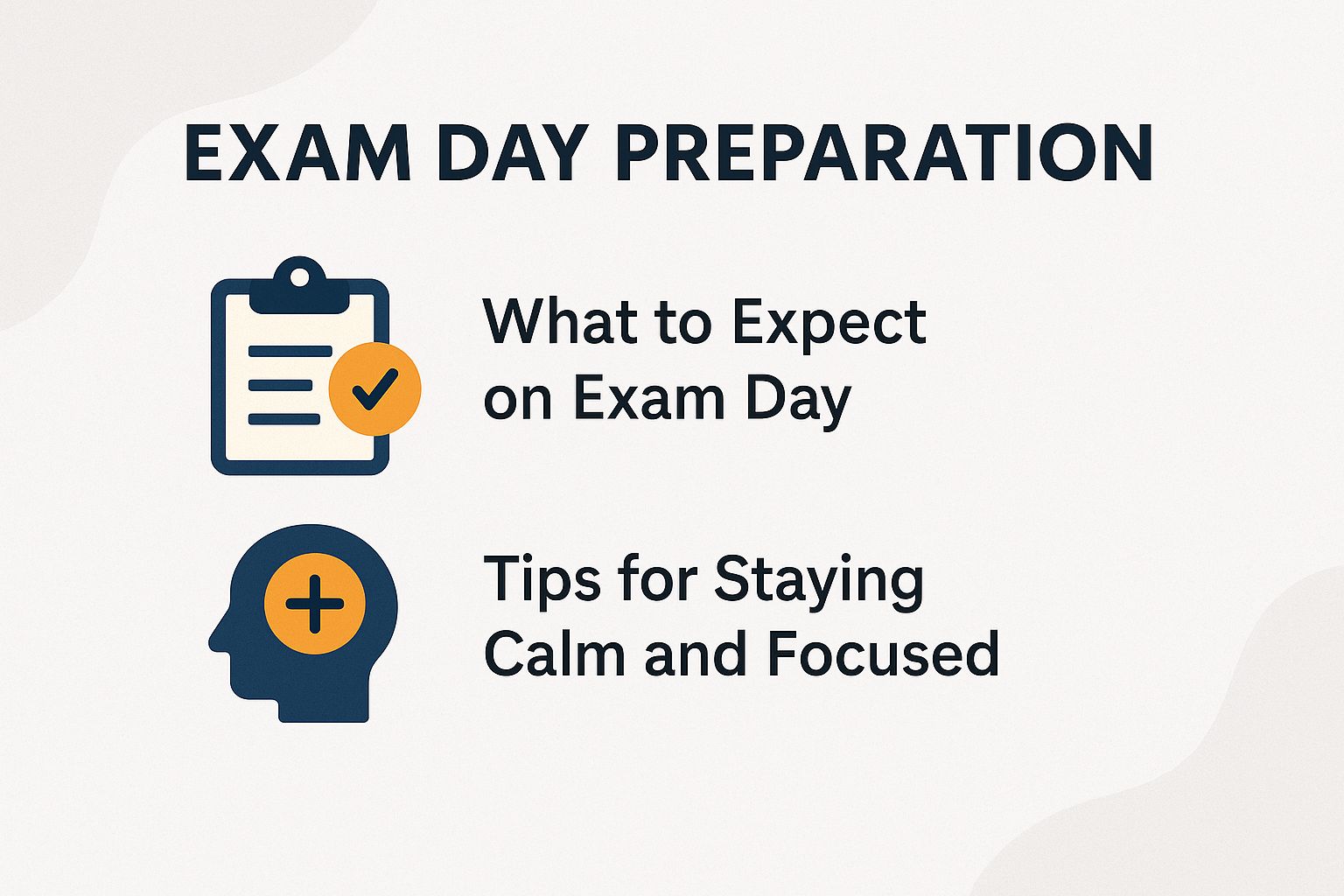
Effectively preparing for exam day can significantly reduce anxiety and help students perform at their best in Non-Verbal Reasoning.
By taking the time to organise their study materials and develop a clear plan, students can approach the exam with confidence and clarity.
What to Expect on Exam Day
On exam day, students can anticipate encountering a variety of Non-Verbal Reasoning questions within a timed framework, necessitating both strategic thinking and sustained focus.
To perform well, candidates should consider arriving early to reduce any potential stress and to familiarise themselves with the exam environment. The check-in process generally requires the presentation of valid identification, so it is advisable to keep this document easily accessible.
During the exam, it is crucial to manage your time effectively; aiming to spend no more than 1-2 minutes per question is a good strategy. If you encounter a particularly difficult question, it may be wise to mark it and return to it later.
Practising with sample questions in advance can greatly improve both your familiarity with the format and your pacing. Utilising resources such as online test simulators or dedicated non-verbal reasoning books can provide valuable practice and insight into the types of questions you can expect.
Tips for Staying Calm and Focused
Staying calm and focused during the exam is essential for maximising performance in Non-Verbal Reasoning. To effectively manage exam anxiety, it can be helpful to incorporate deep breathing exercises.
Inhale deeply for four seconds, hold for four seconds, and then exhale for six seconds. Repeating this process several times can help ground you.
Additionally, practising positive visualisation techniques can be beneficial. Imagine yourself successfully solving the questions and finishing the exam with confidence.
It may also be useful to set aside five minutes before the exam to review your notes and key concepts. This not only reinforces your knowledge but also boosts your self-assurance.
Furthermore, engaging in regular physical activity in the days leading up to the exam can significantly help reduce anxiety levels.
Frequently Asked Questions
1. What is 11 Plus Non-Verbal Reasoning?
11 Plus Non-Verbal Reasoning is a type of test used to assess a student’s ability to solve problems using visual and abstract reasoning skills. It is a common component of 11 Plus exams in the UK for entry into selective secondary schools.
2. How can I prepare for 11 Plus Non-Verbal Reasoning?
To prepare for 11 Plus Non-Verbal Reasoning, it is important to practice regularly and familiarise yourself with the different question types. You can find practice tests and workbooks online or in bookstores. It is also helpful to work on improving your spatial awareness and visual reasoning skills through puzzles and games.
3. What are some common question types in 11 Plus Non-Verbal Reasoning?
Some common question types in 11 Plus Non-Verbal Reasoning include pattern recognition, mirror images, rotations, and series completion. It is important to practice these types of questions and become comfortable with the different techniques used to solve them.
4. How much time should I dedicate to preparing for 11 Plus Non-Verbal Reasoning?
The amount of time you should dedicate to preparing for 11 Plus Non-Verbal Reasoning will vary depending on your current level of skills and understanding. It is recommended to start preparing at least six months before the exam and to allocate regular practice time each week.
5. Are there any tips for improving my performance on 11 Plus Non-Verbal Reasoning?
Some tips for improving your performance on 11 Plus Non-Verbal Reasoning include practising regularly, paying attention to details, and eliminating incorrect answer choices. It is also helpful to read the questions carefully and use your logical reasoning skills to find the correct answer.
6. Is it possible to improve my skills in 11 Plus Non-Verbal Reasoning?
Absolutely! While some children may naturally have a stronger aptitude for non-verbal reasoning, all students can improve their skills with practice and dedication. By regularly practising and familiarising yourself with the different question types, you can improve your performance in 11 Plus Non-Verbal Reasoning and increase your chances of success on the exam.


